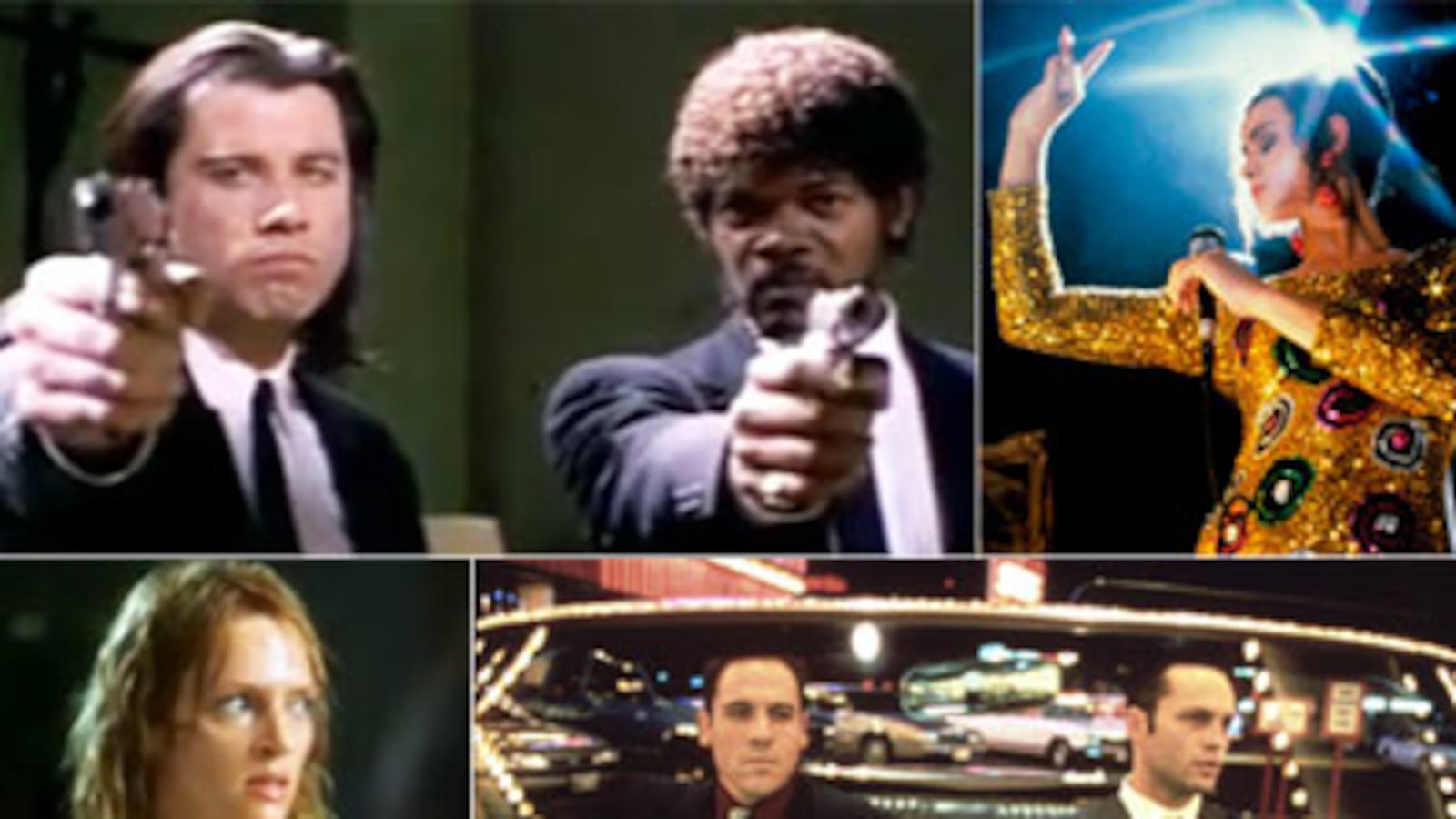Ron Burkle has gotten mixed up with some pretty controversial characters. Anne Hathaway’s felonious ex Raffaello Follieri. An alleged extortionist from the New York Post’s Page Six. Bill Clinton. Now it seems Burkle is poised to fall into the arms of another smooth talker: Harvey Weinstein.
Click the Image to View Our Gallery of the Greatest Miramax Hits

Specifically, Weinstein’s apparent ability to convince Burkle to not only put up most of the $625 million or so needed to acquire Miramax—the partnership currently is in the midst of an exclusive five-day negotiating window with Disney—and also pay him a fee to manage the studio is already being likened to The Heist.
“Harvey’s always been very good at using other people’s money to do exactly what he wants to do,” says a source who has worked with Weinstein in the past.
What he wants to do, in this case, is effectively go home again. After building Miramax, named for parents Miriam and Max, into the preeminent art house studio by turning films with shoestring budgets like Sex, Lies and Videotape, The English Patient and Pulp Fiction into critical and commercial smashes, Weinstein sold out to Disney. Once there, Weinstein traded low cost prestige films for big budget flops, engendering so much ill will that he was eventually pushed out by former Disney CEO Michael Eisner.
“They’re the perfect pairing because they need each other.”
From there, the brothers Weinstein set up their own shingle and raised roughly $1 billion in debt and equity from the likes of Goldman Sachs, Perry Capital, Softbank, and WPP. While the money was intended primarily for movie production, Weinstein, in a vain attempt to make himself into a proper media mogul instead of just a movie producer, used it to invest in such things as fashion house Halston, niche social network asmallworld.com, and home video distributor Genius Products, among other things. Those investments, coupled with the poor performance of films like Derailed, Nine, and Zach and Miri Make a Porno, resulted in multiple rounds of layoffs and a $500 million debt restructuring.
Yet despite the recent track record, Weinstein seems poised to control Miramax again—Hollywood observers universally predict that Harvey and his brother Bob will have a large degree of autonomy should the deal go through. The big question: Why is Burkle funding him?
For the same reasons, it would appear, that he paid Clinton tens of millions as an adviser, and made dubious investments in things like hockey’s Pittsburgh Penguins, Sean Combs’ clothing line, and failed celebrity print magazine Radar. Burkle, who made his fortune in the decidedly unsexy world of grocery stores, consistently acts desperate to shed the omnipresent “supermarket magnate” tag that precedes his every press mention. (After the fallout from the Follieri debacle, the Page Six incident and the bust-up of his friendship with Clinton, as well as numerous tabloid reports linking him with young women and escorts, “scandalous” seems to be the other tag.)
A source familiar with Burkle from the political scene says post-Clinton Burkle is “desperate to find something sexy to remain relevant to his friends on the West Coast.”
Enter Weinstein. He boasts obvious selling points, like knowing the Miramax catalog, which includes such titles as Shakespeare in Love and Chicago, better than anyone, and holding the sequel rights to the Scream, Scary Movie, Spy Kids, and Halloween franchises. There are the Golden Globes and Academy Awards. You can almost hear Weinstein saying to Burkle, “You put up the money, and we’ll be the hottest one-two punch in Hollywood.”
Neither representatives from Weinstein nor Burkle would comment. But a source close to the financier insists, “Ron’s not going to be put in a situation where he doesn’t have control over his own investment.”
Perhaps. But Hollywood is filled with the carcasses of outsiders who bought into the business not because of the movies, but rather because of the glitz and financial promises made from insiders, and left town poorer for it.
“They’re the perfect pairing because they need each other,” says a source who has done business with both Weinstein and Burkle. “Ron wants to be in show business, and Harvey doesn’t want to get tossed out of it.”
Peter Lauria is senior correspondent covering business, media, and entertainment for The Daily Beast. He previously covered music, movies, television, cable, radio, and corporate media as a business reporter for The New York Post. His work has also appeared in Avenue, Blender, Black Men, and Media Magazine, and he's appeared on CNBC, Bloomberg, BBC Radio, and Reuters TV.






